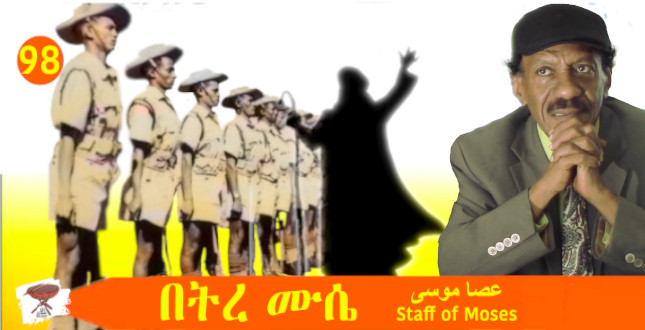The Eritrean Regime and Its Neighbors
On May 24, 1991, Eritreans achieved their long-sought independence, formally recognized on May 24, 1993. Yet, true freedom remained elusive. The organization that became the ruling government legally solidified its hold—not through popular consent, but through brute force, injustice, and external alliances and considerations.
Those early days were euphoric; few foresaw the wars and displacements that would follow. The peace and stability Eritreans longed for turned into a mirage. Instead, their government entangled the nation in numerous regional conflicts:
- It quickly reentered the Sudanese civil war—one it had joined during its guerrilla days.
- In 1995, Eritrea clashed with Yemen over the Hanish Islands, a dispute it lost in international arbitration.
- In 1996–97, it joined the Congolese civil conflict, supporting forces opposed to Mobutu Sese Seko’s regime.
- From 1998 to 2000, Eritrea fought a brutal trench war with Ethiopia, costing over 100,000 lives and displacing more than a million. Eritrea ultimately lost control of Badme, the conflict’s flashpoint, and the border remained tense.The 2000 Algiers Agreement ended the hostilities but ushered in a prolonged state of no-peace-no-war until 2018, when Abiy Ahmed rose to power in Ethiopia. Even then, tensions persisted.
- In 2008, Eritrea and Djibouti clashed at Ras Dumeira. Qatar intervened, deploying peacekeepers and offering incentives to defuse the situation.
- In 2020, Eritrean forces joined Ethiopia’s federal government in its war against the Tigray region, aiming to eliminate their mutual foe: the TPLF.
- Despite not being a signatory, Eritrea was deeply affected by the 2022 Pretoria Agreement between the TPLF and the Ethiopian government. The war left Tigray shattered, its infrastructure in ruins, and thousands displaced or killed.
- In October 2023, Abiy Ahmed declared that securing access to the Red Sea was an “existential issue” for Ethiopia, warning it would be pursued by peaceful or forceful means.
- By early 2024, Eritrea had pivoted: Abiy Ahmed became its new adversary, while the former archenemy TPLF emerged as a strategic ally. This reflects the erratic arc of EPLF-TPLF relations, which have swung between cooperation and enmity since the 1970s.
Abiy’s Red Sea ambitions have further strained relations, and regional tensions have intensified.
Isaias’ Ritual of Interviews
In a recent interview, President Isaias Afwerki predictably blamed external actors for the region’s instability—a familiar ritual. He never acknowledges fault. To him, Eritrea (interchangeable with himself) is always the victim.
There’s a saying: “No permanent friends, no permanent enemies—only permanent interests.” Isaias seems to take that to an extreme, shifting allies and foes with alarming frequency. Saudi Arabia, the UAE, Qatar, Somalia, Sudan, and Djibouti have all rotated roles as enemies or allies—sometimes in the same year.
Notably, the U.S.—long considered the “great Satan”—was omitted from this round of condemnation. He mentioned Saudi Arabia cautiously, mocked the EU, and ambiguously positioned Sudan. He openly criticized Israel while elevating the UAE as a key conspirator. His disdain for Abiy Ahmed was barely veiled.
Inside Eritrea: An Entrenched Crisis
Domestically, Eritrea remains paralyzed. The regime controls all sectors of the economy. Banks are inaccessible to citizens; private transport is being replaced by state-owned firms. Land distribution is monopolized, and construction has stagnated for decades. For many, Eritrea feels like an open-air prison.
The regime also imprisons its own: cabinet ministers and party founders languish in jail—some for over two decades—without charges or trial. Since 2001, the press has been silenced; reporters were either imprisoned or fled. All media are state-owned—radio, press, and television—a national gag order.
This time, however, the tension seems unsustainable. Injustice is widespread. Religious frictions are rising. For years, Eritreans resisted armed rebellion. But patience is wearing thin. Anxiety is rising, and fear is setting in.
The following interview with the late Ethiopian prime minister, the late Meles Zenawi, is a glimpse of how things looked in 2011.
Djibouti, Eritrea & Ethiopia
Question No. 20: Last week I was in Djibouti, and I visited the port facilities, the container storage, the car storage, the oil tank farms, and the dry cargo facilities. I also visited Bilbela, a town that seems to thrive on the business of Ethiopian drivers and the general Ethiopia-Djibouti business and transport trucks that pass through it. I also saw thousands of Ethiopian trucks in that area. My question is, how much business is Djibouti getting from Eritrea? And if what happened ten years ago didn’t happen, how much of that business do you estimate would have been the share of Eritrean ports? And, if the political situation in Eritrea changed and there was a liberal, business-friendly government there, how much of this do you think Eritrea would regain… I mean, including Massawa, which is more convenient to the northern part of Ethiopia.
Meles: Quite a lot. The current prospects in Ethiopia now are such that even if we had Eritrean ports as key ports, we would still be needing Djibouti. So, while we have not given up on the hope of normalization between these two countries, Eritrea and Ethiopia, nevertheless, we are convinced that even with normalization, Assab and Massawa, and a few other ports like Tio, will just not be enough. So, we are investing heavily in Djibouti. We are going to build a new railway from Addis to Djibouti. We are going to build a new railway system from the north to Tadjura—a new port will be built in Tadjura [old Djibouti port]. In the short run, all that business, 80% of that business, would have gone to Assab, and a small percentage would have gone to Massawa, but now it is completely diverted to Djibouti.
Follow-up question: Can you give me some figures for the value of this business?
Meles: I do not have exact figures at hand, but I will be surprised if the net income of Djibouti were to be less than half a billion dollars or so.
Follow-up question: Do you think that this business is lost forever by the Eritrean ports or Eritrea would be able to regain these lost opportunities under normal circumstances?
Meles: It is going to regain it precisely because the demand of the Ethiopian economy is going to go beyond the capacity of Tadjoura, Djibouti, to take care of the requirements of Ethiopia. For example, we are beginning to develop the potassium resources in the Afar region of Ethiopia—that is millions of tons per year that need to be transported. Technically, the closest port to this is not even Assab; it is Tio. You could develop it into a big port. So, under normal circumstances, Eritrea could regain most of these businesses and develop new businesses as well.
Looking forward
It’s hard to imagine the mutual benefits Ethiopia and Eritrea could have reaped from a normal relationship. The Red Sea and the Eritrean ports should have been a reason to cooperate in a civilized manner without provoking or threatening each other. But that starts with goodwill and sound diplomacy—veiled threats and affronts that cross the governments provoke and cause anxiety to the people and are counterproductive. The pressure that both governments are feeling from their failure to establish peace and stability is increasing. The region is so close to a breaking point. If things do not change quickly, which can be considered a miracle, soon something must give in.





Awate Forum